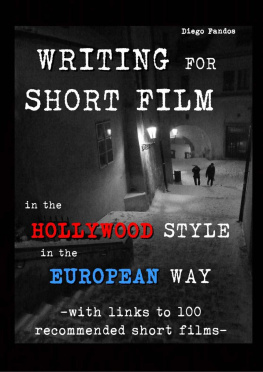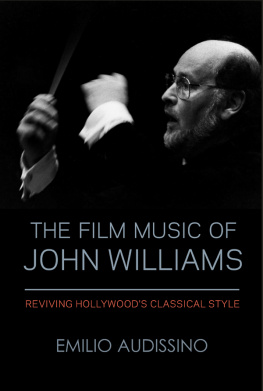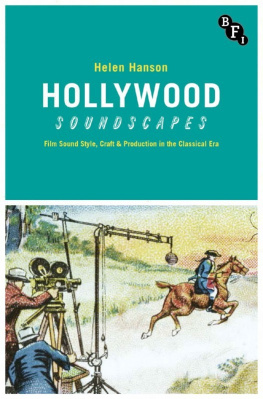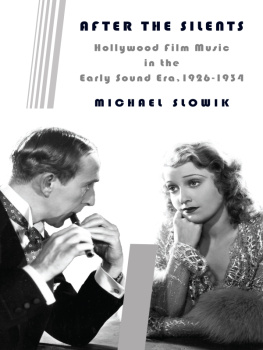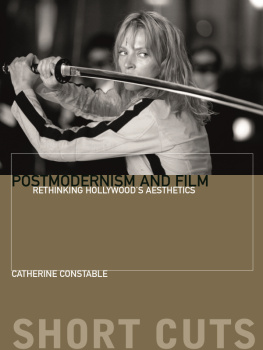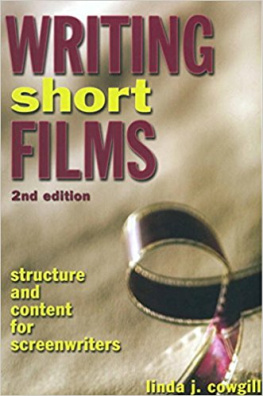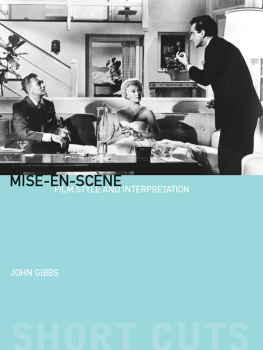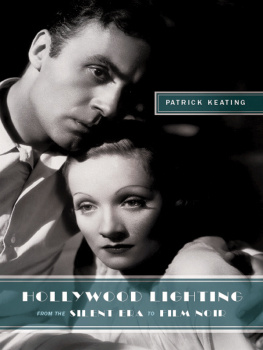Diego Fandos - Writing for Short Film: In the Hollywood style. In the European way. Archplot & Miniplot
Here you can read online Diego Fandos - Writing for Short Film: In the Hollywood style. In the European way. Archplot & Miniplot full text of the book (entire story) in english for free. Download pdf and epub, get meaning, cover and reviews about this ebook. year: 2018, genre: Romance novel. Description of the work, (preface) as well as reviews are available. Best literature library LitArk.com created for fans of good reading and offers a wide selection of genres:
Romance novel
Science fiction
Adventure
Detective
Science
History
Home and family
Prose
Art
Politics
Computer
Non-fiction
Religion
Business
Children
Humor
Choose a favorite category and find really read worthwhile books. Enjoy immersion in the world of imagination, feel the emotions of the characters or learn something new for yourself, make an fascinating discovery.
- Book:Writing for Short Film: In the Hollywood style. In the European way. Archplot & Miniplot
- Author:
- Genre:
- Year:2018
- Rating:3 / 5
- Favourites:Add to favourites
- Your mark:
- 60
- 1
- 2
- 3
- 4
- 5
Writing for Short Film: In the Hollywood style. In the European way. Archplot & Miniplot: summary, description and annotation
We offer to read an annotation, description, summary or preface (depends on what the author of the book "Writing for Short Film: In the Hollywood style. In the European way. Archplot & Miniplot" wrote himself). If you haven't found the necessary information about the book — write in the comments, we will try to find it.
Diego Fandos: author's other books
Who wrote Writing for Short Film: In the Hollywood style. In the European way. Archplot & Miniplot? Find out the surname, the name of the author of the book and a list of all author's works by series.
Writing for Short Film: In the Hollywood style. In the European way. Archplot & Miniplot — read online for free the complete book (whole text) full work
Below is the text of the book, divided by pages. System saving the place of the last page read, allows you to conveniently read the book "Writing for Short Film: In the Hollywood style. In the European way. Archplot & Miniplot" online for free, without having to search again every time where you left off. Put a bookmark, and you can go to the page where you finished reading at any time.
Font size:
Interval:
Bookmark:
Writing for short film
In the Hollywood style
In the European way
Archplot & Miniplot
by Diego Fandos
proofreader: Justin von Tunzelman
Diego Fandos 2018
1. A FEW WORDS
What is this book about?
This book is focused on the writing of short films. Writing a short film is similar to writing a feature, but not the same. I want to explain the differences in these pages. Well also talk about shorts that are worth watching and analysing.
Why the subtitle In the Hollywood style. In the European way ?
By "Hollywood" I mean traditional storytelling. Archplot. I dont want to say that these kinds of film will make millions or that they are garbage to consume, butthat they are correctly and classically built. These movies are made in Hollywood, yes, but also in Spain, China, India, Turkey, Argentina... anywhere.
By "European" I mean miniplot films: works where apparently nothing is going on - but they should also be entertaining and meaningful. These movies are made in the USA, Spain, China, India, Turkey, Argentina... anywhere.
Whats new in this book?
Although Ill dedicate a long section to "classical" storytelling, there are a lot of words, thoughts and examples focused on miniplot films. I wrote these pages because I couldnt find any reference to miniplot in the bibliography of screenwriting. This volume aims to fill that void. I hope that will be useful to you.
And...
The book also includes interviews with successful screenwriters of feature films - Zdenek Sverak (Oscar winner with Kolya); Alejandro Hernndez (Goya winner and co-writer of Amenbar) - and short films - Maryna Vroda (Cannes Palm dOr winner), Borja Cobeaga (Oscar nominated) and Carlos Violad ( Not funny ), Roberto Prez Toledo ( Los gritones ) and Kaveh Mazaheri (Retouch), makers of short films that have achieved worldwide success.
And...
At the end of the volume you'll find links to 100 great short films recommended by people from different countries and positions in the film world.
Who am I?
Im a filmmaker. I have made a bunch of short films, TV commercials, a couple of documentaries and a feature film ( Cosmos ) that was premiered in the international film festival of San Sebastian and was commercially released in 2008.
Since that yearI have worked in the Screenwriting department of Prague Film School). Every season I read hundreds of scripts that are made into short films (in PFS we have a very practical approach). I analyse those scripts and I compare them with the short films that are created from them; I see their failures and their achievements, and I reach the CONCLUSIONS that are expressed here.
In addition, remembering the work in the School of alumni who are already positioning themselves for great success in the world of cinema makes it easier for me to help new students who come to PFS.
In our classes have been people like Erdem Tepegoz (best debut in Turkey with Zerre (2012)); Franziska Pflaum (best German short film in 2014 with So schon wie du ); Ziya Demirel (competed with his short Sali in Cannes 2015); Raam Reedy (director) and Doron Tempert (DOP), winners in Locarno 2015 with their feature debut Thithi ; Simon Vahlne (in Cannes 2016 with Fight in a Swedish Beach ); Giovanni Fumu in Venecia 2016 ( Good News ); Kaveh Daneshmand (2016 Film Critics Award in Iran); Haolu Wang; Boris Nikolov; Ran Li; Giovanni Rustanto; Aylin Gokmen, Joaqun Franke and so many more young filmmakers that have shared their energy and talent in PFS and have helped all of us to be better authors.
While working at the School, I have also recently made a couple of shorts, both 10 minutes long: Under Pressure (2014, "commercial") and Aurora (2017, "art house") that have been my most successful works to date, both selected in many festivals and winning a number of awards. They came from the bottom of my heart and were greatly shaped by the learning I have enjoyed while working with so many talented students and colleagues in the School.
Aurora had a budget of 300 (much more is being dedicated to its distribution) and is competing with excellent films that probably cost 100 times more. Its a good illustration of the fact that the idea behind a film is essential, but craft and tricks are also hugely important. Youll find them in these pages.
In this book I share what I have learned from 10 years of experience as an instructor in Prague Film School and even longer as a filmmaker, both from my successes and my failures.
For future collaboration
If you want me to visit your institution or city for a seminar or workshop; if you have a proposal or an idea, please contact me at:
Thank you
To all my students, staff and colleagues in Prague Film School. It is a pleasure to work with you. Im learning a lot from you in class, in the yard, and during evaluations. And of course to Tariq Hager and Tomas Krasauskas: directors of PFS, the makers of this dream.
To Toms Rosn and Justin von Tunzelman for their knowledge, comments and suggestions; to Txema Muoz, for providing me with the great short films of Kimuak; to Jorge Snchez Caldern for his support and to Jindra Guttenbergova for not letting me get lost in translation with Zdenek Sverak.
To Txepe Lara, Dimas Lasterra, Alberto Rojo and Jordi Niub for putting and keeping me on the road.
To my family and friends in Czech Republic and Spain.
To Zuzana Hruska Polackova, Kurt Cramer, Boris Nikolov: I remember you; we miss you. Thank you for your support, energy and love.
2. INTRODUCTION
In this chapter, well mention the following short film. Ideally, you should watch it before reading these pages.
Idiot with a Tripod Director: Jamie Stuart. 3 minutes
https://vimeo.com/18 31239
Writing a short film is a beautiful way to take a first step in the world of filmmaking. Besides, nowadays, shooting and promoting a short is much easier than some years ago thanks to new technology.
However, the dramaturgic principles of the story are always the same. If we achieve some mastery of these principles, well be able to make our work reach a good number of people, in spite of having a small budget.
In this book well observe these principles, well analyse them, and well see what works and what doesnt work. Mastery of the principles does not guarantee that we are going to have a hit - other factors intervene, like the quality of the idea and the execution of the film - but they might contribute to our short film not finishing up hidden in some drawer. Perhaps it might achieve sufficient success to allow us to make another short, or maybe even a feature film.
What works and what doesnt?
Success does not come by chance. There are principles that can help us to evaluate the potential success of a script, whether a short (film) or a feature. Having studied screenwriting, having experienced some bitter results and some sweet results as an author in my own right, and having worked as instructor in the Prague Film School for many years, I think that I might offer some advice about writing short films. I have some clues but of course I do not offer the Holy Truth.
The philosophy of this book is to be clear and useful, to help with direct advice based on the failures and achievements of works that have already been shot. Most of these works may be found on the internet, so Ill mention them frequently.
Some of this advice might seem contradictory: maybe it is. Sometimes in filmmaking a principle exists (for instance: voice over is rubbish ) but then, in a moment, somebody changes this axiom with great success ( voice over is one more tool that we have, and can create a great effect ). Or: show, dont tell, and: tell, dont show At other times, however, people try to change a principle but the experiment doesnt work. Someone once said, "in filmmaking everything is possible, including failure".
Next pageFont size:
Interval:
Bookmark:
Similar books «Writing for Short Film: In the Hollywood style. In the European way. Archplot & Miniplot»
Look at similar books to Writing for Short Film: In the Hollywood style. In the European way. Archplot & Miniplot. We have selected literature similar in name and meaning in the hope of providing readers with more options to find new, interesting, not yet read works.
Discussion, reviews of the book Writing for Short Film: In the Hollywood style. In the European way. Archplot & Miniplot and just readers' own opinions. Leave your comments, write what you think about the work, its meaning or the main characters. Specify what exactly you liked and what you didn't like, and why you think so.

